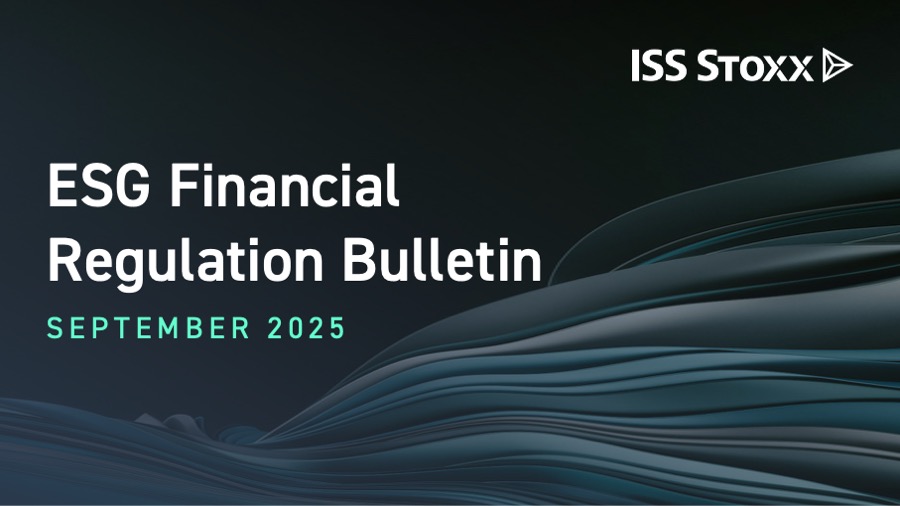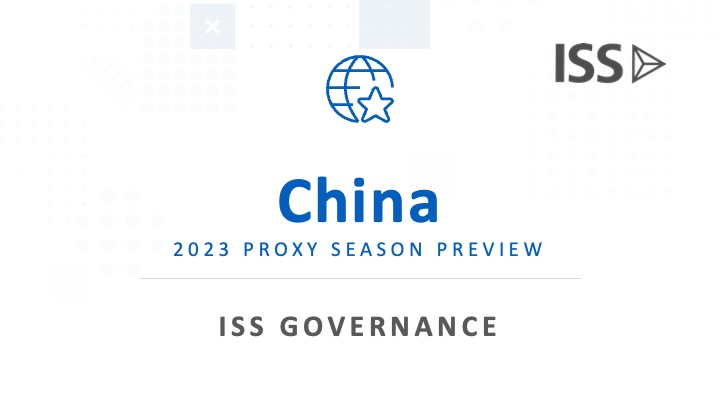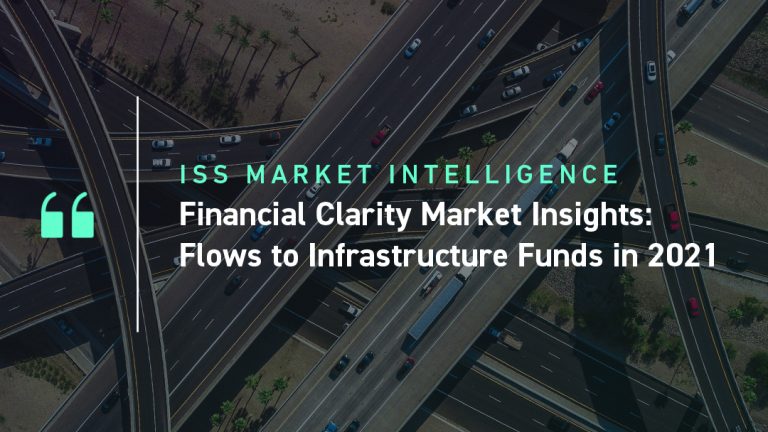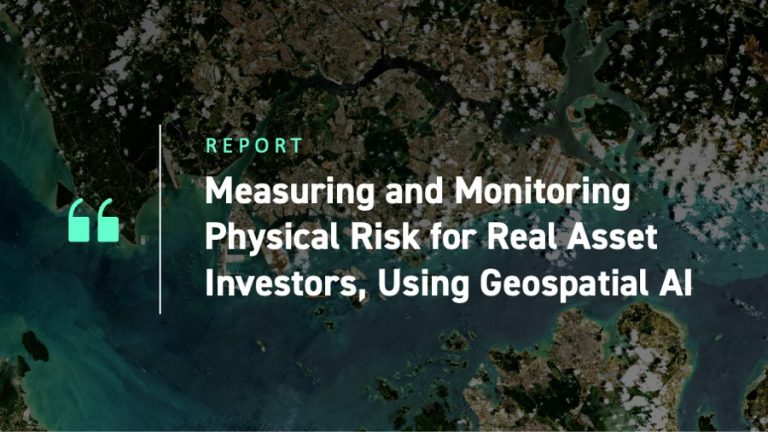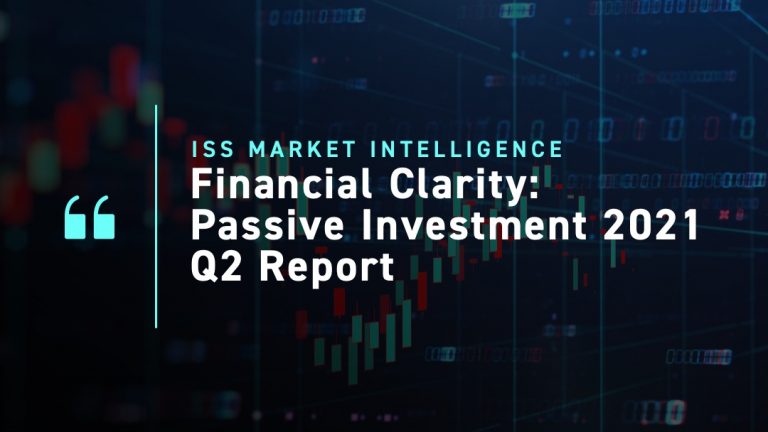


ISSB
IFRS Foundation Publishes Article Clarifying Requirements on the Disclosure of Anticipated Financial Effects of Sustainability-Related Risks and Opportunities
The International Sustainability Standards Board (ISSB) published an article on August 18 to clarify the requirement under the ISSB Standards to disclose anticipated financial effects of sustainability-related risks and opportunities. The article was published to address potential uncertainty on the part of companies applying the ISSB Standards as to how to determine and disclose anticipated financial effects of sustainability-related risks and opportunities. Under the ISSB Standards, companies are required to disclose their sustainability-related risks and opportunities in a manner that enables investors to make sound capital allocation decisions. This includes information that allows investors to understand the effects of sustainability-related risks and opportunities on a company’s financial performance, both the current effects (for the reporting period) and the anticipated effects over the short, medium, and long term.
The ISSB standards allow for a combination of quantitative and qualitative information but acknowledge that quantitative information, particularly on anticipated financial effects for risks and opportunities that may not have materialized, can be difficult for companies to obtain. Accordingly, the article clarifies that companies are not required to provide quantitative information in certain circumstances, such as when the effects of different risks and opportunities are not separately identifiable, or the level of measurement uncertainty involved in estimating those effects is so high that the resulting quantitative information would not be useful. Furthermore, companies do not have to provide quantitative information about anticipated financial effects if they do not have the necessary skills, capabilities, or resources to do so.
The Science Based Targets initiative Invites Companies to Participate in the Pilot Test of the Draft Automotive Sector Net-Zero Standard
The Science Based Targets initiative (SBTi) invited businesses in the automotive sector on August 18 to participate in the pilot test for the draft Automotive Net-Zero Standard. The draft Automotive Sector Net-Zero Standard is a recently developed and sector-specific framework designed for automakers and auto parts manufacturers to set greenhouse gas emissions reduction targets in line with the objective of achieving Net Zero emissions by 2050. Following an initial public consultation, the SBTI is seeking to refine the draft Automotive Standard based on stakeholder feedback based on experience from practical application of the draft Standard. The pilot is intended to yield insight as to the practicability of the draft Standard as well as provide companies with an opportunity to demonstrate climate leadership. The SBTi thus encourages companies of all sizes and business models to submit applications to participate in the pilot, which will be carried out over the course of Q4 2025. The deadline to submit applications is September 12.


Singapore
The Assistant Managing Director of the Monetary Authority of Singapore (MAS) Highlights the Importance of Improving Corporate Governance at the Singapore Governance and Transparency Index Forum 2025
Mr. Lim Tuang Lee, Assistant Managing Director (Capital Markets) at the Monetary Authority of Singapore (MAS), delivered remarks on August 13 on the importance of enhancing corporate governance in Singapore at the Singapore Governance and Transparency Index Forum (SGTI). In a speech entitled “Advancing Our Corporate Governance Journey – Looking Inward, Outward, and Forward,” Mr. Tuang Lee highlighted the need to improve director independence and board diversity at Singaporean companies as well as to undertake more active engagement with a broad range of stakeholders, including shareholders, to cultivate genuine dialogue and build trust. Additionally, Mr. Tuang Lee underlined the importance of companies being more forward-looking and strategic as they navigate a more uncertain geopolitical and technological landscape. With these considerations in mind, the MAS, the Singapore Exchange (SGX), and Singapore’s Corporate Governance Advisory Committee (CGAC) have embarked on the review of Singapore’s Corporate Governance (CG) Code, which will critically assess whether the Code’s requirements are delivering the right outcomes and whether the “one-size-fits-all” approach reflected in the current Code is appropriate.
The Accounting and Corporate Regulatory Authority and Singapore Exchange Regulation Defer Application of Climate-Related Disclosures for Singaporean Companies
The Accounting and Corporate Regulatory Authority (ACRA) and Singapore Exchange Regulation (SGX RegCo) announced extended timelines for the implementation of climate-related disclosure requirements for listed and large non-listed Singaporean companies on August 25. According to the updated timeline, all listed companies are expected to continue reporting Scope 1 and Scope 2 greenhouse gas (GHG) emissions for the financial year (FY) commencing on or after January 1, 2025. However, henceforth, only Straits Times Index (STI) constituents will be expected to report Scope 3 emissions from FY2026. For other listed companies, reporting of Scope 3 emissions will remain voluntary “until further notice.” Moreover, non-STI constituent-listed companies with a market capitalization equal to or exceeding $1 billion will be required to make other ISSB-based climate-related disclosures as of FY2028, while non-STI constituent-listed companies with a market capitalization of below $1 billion will have to do likewise as of FY2030. For large non-listed companies, with an annual revenue equal to or exceeding $1 billion, all climate-related disclosures are deferred until FY2030, with reporting of scope 3 GHG emissions remaining voluntary. Similarly, the requirement to receive limited external assurance for GHG emissions disclosures is deferred until 2029 for all listed companies and FY2032 for large non-listed companies.
Malaysia
The Joint Committee on Climate Change Reaffirms Its Commitment to Advancing the Climate Agenda at Its 15th Meeting
The Joint Committee on Climate Change (JC3), co-chaired by Bank Negara Malaysia (BNM) and the Securities Commission Malaysia (SC), published a press release on August 11 reaffirming its commitment to advancing the climate agenda in Malaysia and outlining future initiatives. The press release was issued following the 15th meeting of the JC3 on August 7, where the committee highlighted the need to scale up climate financing and nature-positive initiatives in Malaysia while following a pragmatic approach to achieving Net Zero. The committee highlighted the success of the Climate Finance Innovation Lab (CFIL), launched in June 2025, which has received strong interest from a wide range of project owners and potential funders. The committee also announced the plan to develop a unified Malaysian Taxonomy on Sustainable Finance.
The future Malaysian Taxonomy would align with the ASEAN Taxonomy and provide science-based technical screening criteria for activities that contribute to environmental goals to better enable sustainable investment in Malaysia. Additionally, the JC3 will continue supporting efforts of the Advisory Committee on Sustainability Reporting (ACSR) in implementing Malaysia’s National Sustainability Reporting Framework (NSRF) across the financial sector, potentially through the development of a guidance document for financial sector companies. Relatedly, the JC3 will continue its work to address broader data challenges in the financial sector, such as through the publication of the fourth iteration of the JC3 data catalogue in November 2025.
Indonesia
The Indonesian Institute of Accountants, Bank Indonesia, the Ministry of Finance, and the Otoritas Jasa Keuangan Announce the Introduction of Indonesia’s Sustainability Disclosure Standards
The Ikatan Akuntan Indonesia (Indonesian Institute of Accountants [IIA]), Bank Indonesia, the Ministry of Finance, and the Otoritas Jasa Keuangan (OJK) collectively launched Indonesia’s Sustainability Disclosure Standards (SPK) at a dedicated seminar on August 11. The SPK, which is aligned with the IFRS Sustainability Disclosure Standards (IFRS S1 and S2), was officially ratified by the Sustainability Standards Board of the IAI on July 1 and will enter into effect as of January 1, 2027.
Otoritas Jasa Keuangan Launches Pilot Project on the Implementation of the Indonesia Taxonomy for Sustainable Finance Version 2
The Otoritas Jasa Keuangan (OJK) launched a phased pilot project on August 15 on the implementation of Indonesia’s Taxonomy for Sustainable Finance (TKBI) Version 2. By way of background, the OJK published Version 1 of the TKBI, focusing on the energy sector, in February 2024. This was followed by Version 2 of the TKBI, which provided technical screening criteria in February 2025 for the Construction and Real Estate sector, Transportation and Storage sector, and certain activities in the agriculture, forestry, and other land uses sector. The aim of the pilot project is to ensure that financial institutions, issuers, and public companies in Indonesia understand TKBI Version 2 and have adequate internal capacity to apply it practically. The first phase of the pilot project will involve all commercial banks in Indonesia.
Australia
The Australian Treasury Launches Public Consultation on Climate-Related Transition Planning Guidance
The Australian Treasury opened a public consultation on August 15 to gather feedback on forthcoming guidance on best practices for climate-related transition planning. The climate-related transition planning guidance is intended to enable organizations in Australia to identify and develop strategies in response to climate-related risks and opportunities in a manner consistent with Australian regulatory requirements and their sustainability-reporting obligations. The consultation consists of two parts (Part A and Part B). Part A outlines the role of transition planning and the Treasury’s proposed design principles while Part B provides illustrative draft guidance. In terms of the proposed design principles for the guidance, the Treasury has identified four key principles to guide transition planning, namely: 1) that transition planning in Australia should be internationally aligned; 2) that transition planning should support Australia’s domestic decarbonization and adaptation; 3) that transition planning should balance ambition and flexibility; and 4) that climate should come first but not be the only topic considered. The consultation will remain open until September 24.
New Zealand
The Financial Markets Authority (FMA) Conducts Review of Climate-related Disclosures
New Zealand’s Financial Markets Authority (FMA) published a report on August 4 titled “Climate-Related Disclosures: Insights from Our Reviews 2025.” The report assesses climate reporting entities’ (CREs) compliance with the requirements of New Zealand’s Climate-related Disclosure (CRD) regime and provides useful feedback as to how CREs can improve their disclosures in the future. The report identifies several areas for potential improvement, such as the disclosure of climate-related risks and opportunities, where FMA has described the current disclosures as insufficient or incomplete. The report also seeks to address other misinterpretations that may have arisen on the part of CREs when applying the CRD regime, such as the distinction between disclosing the impact of ‘climate,’ as opposed to ‘climate change.’


EU
The European Financial Reporting Advisory Group (EFRAG) Consults on Revised European Sustainability Reporting Standards (ESRS) Exposure Drafts
The European Financial Reporting Advisory Group (EFRAG) opened a public consultation on the revised Exposure Drafts (EDs) of the European Sustainability Reporting Standards (ESRS) on July 31. The revision of the ESRS is a major component of the European Commission’s Sustainability Omnibus initiative and aims to significantly reduce the burden of sustainability reporting for companies in scope of the Corporate Sustainability Reporting Directive (CSRD). According to the EFRAG, the EDs introduce a streamlined and more easily implementable double materiality assessment, envisage the removal of all voluntary disclosures, and cut the number of mandatory datapoints to be reported by 57%. The consultation will remain open until September 29.
The European Securities and Markets Authority (ESMA) and the European Environment Agency (EEA) Sign a Memorandum of Understanding to Strengthen Cooperation in the Realm of Sustainable Finance
The European Securities and Markets Authority (ESMA) and the European Environment Agency (EEA) released a Memorandum of Understanding (MoU) on August 20 to strengthen cooperation in the domain of sustainable finance. In particular, as described, the MoU seeks to enhance cooperation with respect to environmental matters and their integration into the EU’s sustainable finance framework. The MoU establishes arrangements for ESMA and the EEA to exchange expertise, share information and data, and support mutual capacity building.
The European Banking Authority (EBA) Issues a No-Action Letter on the Application of ESG Disclosure Requirements under the Pillar 3 Disclosure Framework
The European Banking Authority (EBA) issued a no-action letter on August 6 on the application of ESG disclosure requirements under Pillar 3 of the Capital Requirements Regulation (CRR3). The no-action letter instructs member state national competent authorities (NCAs) not to prioritize enforcement actions in relation to various disclosure templates under Commission Implementing Regulation (EU) 2024/3172 and EBA Decision EBA/DC/498 of July 6, 2023, in view of legal and operational uncertainties triggered by the ongoing Sustainability Omnibus legislative package. The no-action letter formalizes guidance provided in the EBA’s Consultation Paper on amended disclosure requirements for ESG risks, equity exposures, and aggregate exposure to shadow banking entities.
UK
The Financial Conduct Authority (FCA) Publishes Findings of Review into Benchmark Administrators’ Data Quality Controls
The Financial Conduct Authority (FCA) published on July 28 the findings of its multi-firm review into how benchmark administrators (BMAs) manage data risks. As set out in the FCA’s portfolio letter of December 2024, the FCA review was prompted by concern over potential weaknesses in BMAs’ data ingestion and monitoring controls and aimed to understand how firms fulfilled their obligations under FCA Principles 2 and 3 (“due skill, care and diligence” and “adequate risk management systems”), as well as applicable provisions under the UK Benchmark Regulation (BMR).
The review focused on 5 key themes: 1) supplier onboarding; 2) data quality oversight; 3) resilience and incident response; 4) governance and assurance; and 5) emerging risk awareness. Overall, the FCA found that robust control environments in relation to these key themes are not consistently in place across BMAs. The FCA has indicated that it expects BMAs to address gaps in their data control frameworks and ensure they evolve in pace with the market. The FCA stated that it plans to conduct additional reviews of the other risk areas identified in the portfolio letters 2025 and 2026, including benchmark controls, disclosures, and operational resilience.



By:
Hugo Gallagher, Senior Associate, Regulatory Affairs & Public Policy, ISS STOXX
Karina Karakulova, Director of Regulatory Affairs & Public Policy, ISS STOXX
